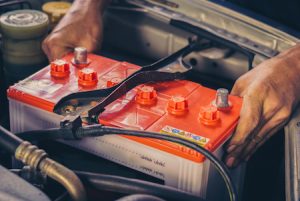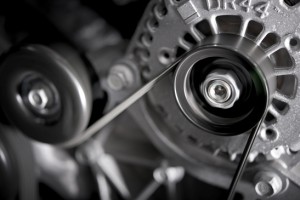 Batteries are a huge part of modern life. Think of how many battery chargers you own.
Batteries are a huge part of modern life. Think of how many battery chargers you own.
Of course, our purpose here is to talk about your car battery. When people come into Express Car Care and need a new battery, they’re really not that happy about having to spend the money. But the truth of the matter is, that 70 percent of batteries don’t make it for 4 years.
That may sound grim, but there are some things that you can do to extend the life of your battery. First, keep it clean. If you see it getting dirty or greasy, let us know at Express Car Care and we can clean it off. A dirty battery runs hotter, and that shorten its life. If your battery terminals are corroded, let us take a look at that, too. We can clean them, and if the corrosion has gotten into the battery cables, we can replace them.
Also, running your battery way down is bad for it. Things like running the headlights or watching a DVD player with the car turned off can deeply deplete your battery. The typical battery can only take about 10 of those deep cycle depletions before it gives up the ghost.
Because we often take short trips around an area with lots of stops for errands, our batteries can end up not getting fully recharged just by driving around. That also shortens battery life. You can hook up a good quality automatic battery charger at home from time to time. We recommend charging once a month during hot months and every three months during cold months.
Now when it’s finally time to get a new battery, we can help you find the right replacement. We’ll always make sure to meet your manufacturer’s recommendations. If you have special needs, like living in a very cold climate or running a lot of electrical accessories, we can look at an upgrade that’ll give you the power you need.


 Some cars are fancy, some are not; but they all have one thing in common…they get us where we want to go. Unfortunately, we tend to underestimate the needs of the car until much too late. Sometimes this means we are stuck with a costly bill that could be avoided, and other times, this means we are stranded at the side of the road wondering what to do. If you want to keep your car in good working condition, start being proactive in your car repair needs.
Some cars are fancy, some are not; but they all have one thing in common…they get us where we want to go. Unfortunately, we tend to underestimate the needs of the car until much too late. Sometimes this means we are stuck with a costly bill that could be avoided, and other times, this means we are stranded at the side of the road wondering what to do. If you want to keep your car in good working condition, start being proactive in your car repair needs.